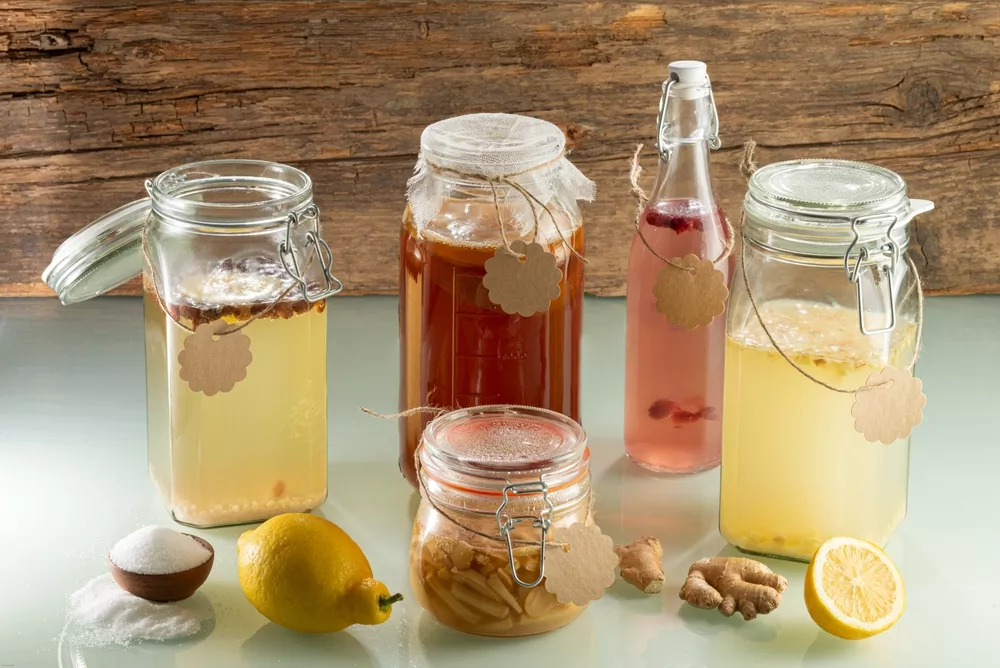Verified on 03/27/2024 by Alexane Flament, Editor
Probiotics are bacteria living by the billions in the intestine. They serve to keep the body in good health. In addition, it is found naturally in certain foods. Find out which ones.
What are probiotics used for?
The intestinal flora (microbiota) has billions of bacteria.
« The composition of the flora varies enormously in quantity and quality along the digestive tract. The further down we go towards the colon, the denser and more anaerobic the flora is (only survives in the absence of oxygen)” indicates Nicolas Aubineau, dietician and nutritionist.
So, there are different types of natural probiotics: bifidobacteria, streptococci, lactobacilli, yeasts, etc.
According to INSERM, probiotics are thus living microorganisms. Consumed in sufficient quantities, they enable better functioning of the body.
They can be found in certain foods but also in the form of food supplements. Taking enough of it allows you to take care of your intestinal flora and protects the intestine.
All these bacteria live in symbiosis with the human body and do not cause any disease.
On the contrary, they have a “role of protection of the intestinal mucosa by the dominant flora against the invasion of exogenous bacteria but also a role in stimulating the immune system (70% of the cells of the immune system are located at the intestinal level)” says the nutritionist.
In summary, a balanced microbiota is essential to maintain good health, from a digestive, immune and neurological point of view.
Where to find it in your diet?
There are foods naturally rich in natural probiotics. Consuming them regularly allows you to take care of your intestinal microbiota.
Thus, we find them in:
- Yogurts and fermented milks. It is preferable to favor natural farm yogurt or Greek yogurts. Industrial yogurts are generally rich in sugars, additives and sweeteners, which are harmful to your health;
- Kefir and kombucha. The first is a drink made from fermented milk. The second is a drink made with fermented tea;
- Soy derivatives like miso or tempeh ;
- Raw sauerkraut ;
- The kimchia Korean specialty resulting from fermentation with cabbage, chili pepper, garlic, ginger, shallot and salt;
- Unpasteurized beers ;
- Olives and pickles ;
- Sourdough bread ;
- Blue-veined and rind cheeses.
When pasteurization and sterilization are used to increase shelf life, the natural probiotic score is decreased.
The less the product is heated and processed, the more interesting it is.

Health journalist
March 27, 2024, at 4:10 p.m.
100% Readers found this article helpful And you ?
Was this article useful to you?












